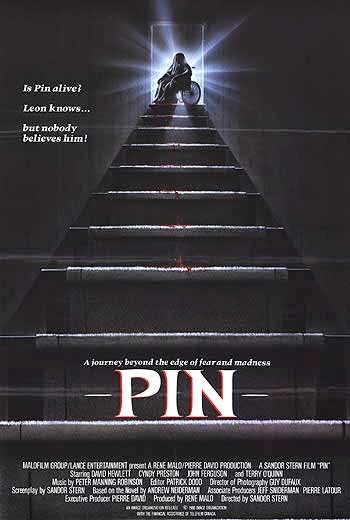
The bulk of the film focuses on the captivating Mimieux and her cruelty towards these men. The film is not simply about how a woman is cruel to men for her own entertainment, rather it seemed to be a criticism of corporate culture and the things people allow themselves to undergo to make more money and gain higher power in their jobs. At the beginning of their training, Bianca has the men form a semicircle in the classroom. The first man she forces to face his fear is made to strip and get into a cage. She humiliates him, however, the result of this is unexpected. In different ways, she makes every man in the group do something humiliating or frightening so as to force each man into a confrontation with his fears. By the end of the film, the reason for all of this activity is explained, hence my rationale that this film is anti-corporate world and speaks to the pressures felt by some in said world. This is not a film one would want to watch with impatient movie fans. There are scenes where some may want to yell at the screen and say, “Don’t let her do that to you!” The situations presented in the film are not that simple, plus there are big bodyguard dudes in the room anyway, so fighting back wouldn’t help them out a whole lot. “Brainwash,” aka “Circle of Power,” is a unique film, made during a time of more daring filmmaking, basically 1970-1985. It probably did not get much of a theatrical release and it is not on dvd. You can find a vhs copy of it on Amazon and Ebay from time to time, however. It is worth seeking out and watching because of it’s no-nonsense approach. Not much time is spent lingering on unimportant nonsense before the primary action of the film takes place. After about ten minutes, we meet Mimieux’s character and the fun begins. There is a poster for this film one may find online which shows a woman whose face we cannot see and whose shirt is opened up revealing a bit of breasts, or as us intellectuals call them, breastages. This is a misleading poster as Mimieux’s character is not meant to be a sexual object in the film. She is very sexy, however, the image in that poster has nothing to do with the film. This poster below is not that one.

“Brainwash” was directed by Bobby Roth, who according to IMDB, has directed four episodes of the current popular ABC tv series, “Revenge.” He has also directed episodes of “Dr. Quinn Medicine Woman,” “Prison Break,” “Lost,” and the short-lived “Flash Forward.” The film does,at first, have the feel of a made-for-tv film, however, it’s subject matter and some other factors quickly remove all thoughts of Quinn Martin or the old ABC Sunday Night Movie theme.
The reason I like “Brainwash” is fairly simple. I had never seen a film quite like it before. Also, the film’s low budget gives it a more intimate feeling, a sense that the viewer is in the training classroom with Mimieux and these men. This makes the film more tangible and without a feeling of isolation from the action in the film. This is one of the probably unintended, though almost always present, aspects of low budget films of the 70’s and 80’s. Because these films were not able to afford to have a lot of special effects and had to rely on atmosphere, they are sometimes more interesting as long as, of course, the script is decent. I encourage you to seek out this film and not be brainwashed into thinking that just because a film has a low budget and was likely seen, at the time, as just drive-in fodder, that there is not some substance within that film. Obviously, not all low budget films of this time period are good, however, there are quite a few that are worth watching and some great discoveries to be made.



















































































No comments:
Post a Comment